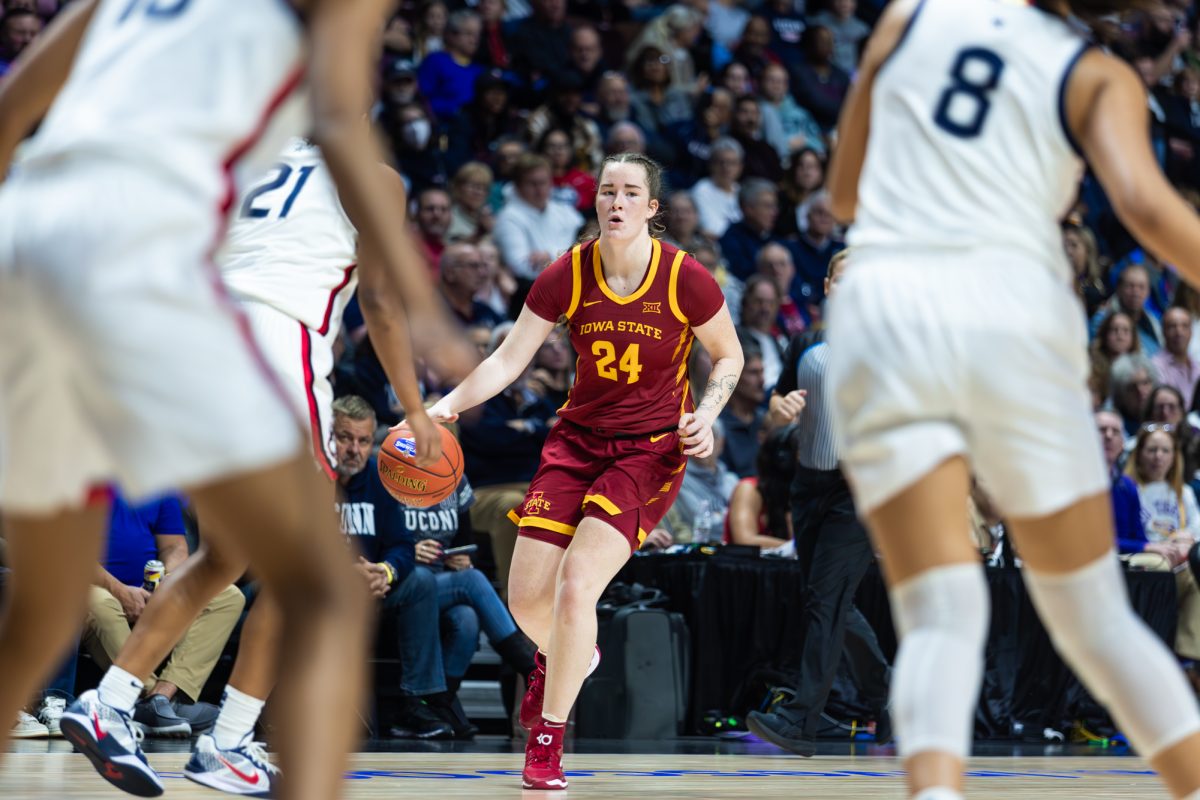COMMENTARY: Learning about our whole world
September 14, 2008
“The world is just awesome.”
This is the new slogan used by a rebounding Discovery Channel — and with a catchy commercial to go with it. This informational-documentary network is on a comeback after its overreliance on programs like “American Chopper” and “Monster Garage” a few years back.
Discovery, like its many TV competitors and peers, is a place where the audience can learn about science, technology, history, nature and the world around them — it’s awesome, after all.
The network partially jumped on the reality ship soon after 2000, but is now returning to its roots.
There are some changes. Some of us grew up learning about nature on Discovery, but today it isn’t as emphasized since Discovery launched Animal Planet — one of nine sister channels.
That’s now the network to see lions, tigers and the mating habits of dolphins. And Animal Planet has found success with animals in “World’s Most Amazing Videos”-esque programs and made the lives of meerkats as intriguing as the lives at Wisteria Lane and Seattle Grace Hospital.
For those people who love history, there is the essential History — or was depending on who you ask.
The “The” and “Channel” have been dropped from the name, and more programming is reality-based.
What do “Ax Men,” “Ice Road Truckers” and “Tougher in Alaska” have to do with history? I haven’t a clue.
Sure, they’re interesting, but the series echo what Discovery has been building on while the actual history programming is decreasing in primetime.
History was once criticized for focusing on World War II too much, so it launched the Military History Channel. Then it was criticized for the lack of Eastern World history coverage, so History International was launched.
The network still has “Modern Marvels” and other specials to showcase history but the network takes a more investigative angle in programs like “Surviving History.” And the large amount of UFO specials is rather odd — its historical value is debatable.
TLC — not to be confused with its former name, The Learning Channel — was, for years, an instructional network, until Discovery bought and relaunched the network.
TLC struck gold with “Trading Spaces.” Since then, it began to target women and has done so successfully with “What Not to Wear” and “While You Were Out,” but the actual instructional programming is long gone.
This aspect of informational and educational TV once included A&E Network, but it has since ventured for a broader audience — and more money.
There are those that are a part of informative TV market that hasn’t changed nearly as much. HGTV and Food Network haven’t strayed and neither has The Travel Channel.
Let’s hope they don’t change course because their programming niche is focused, and who doesn’t love watching a first-class meal made before their eyes?
— Anthony Capps is a junior in journalism and mass communication from Oskaloosa
The ownership of the networks
There are two major players in cable’s educational networks: A&E Television Network and Discovery Communications.
The earlier owns History and its two sister channels as well as A&E and The Biography Channel.
The latter owns the Discovery Channel and all its spinoff networks — Animal Planet, Discovery Health, Planet Green, Discovery Kids, FitTV, Investigation Discovery, Military Channel, TLC and Science Channel.
Other similar channels such as Travel Channel, HGTV and Food Network are owned by other companies. Travel, former owned by Discovery, is owned by Cox Communications. HGTV and Food are owned by E.W. Scripps Company.





